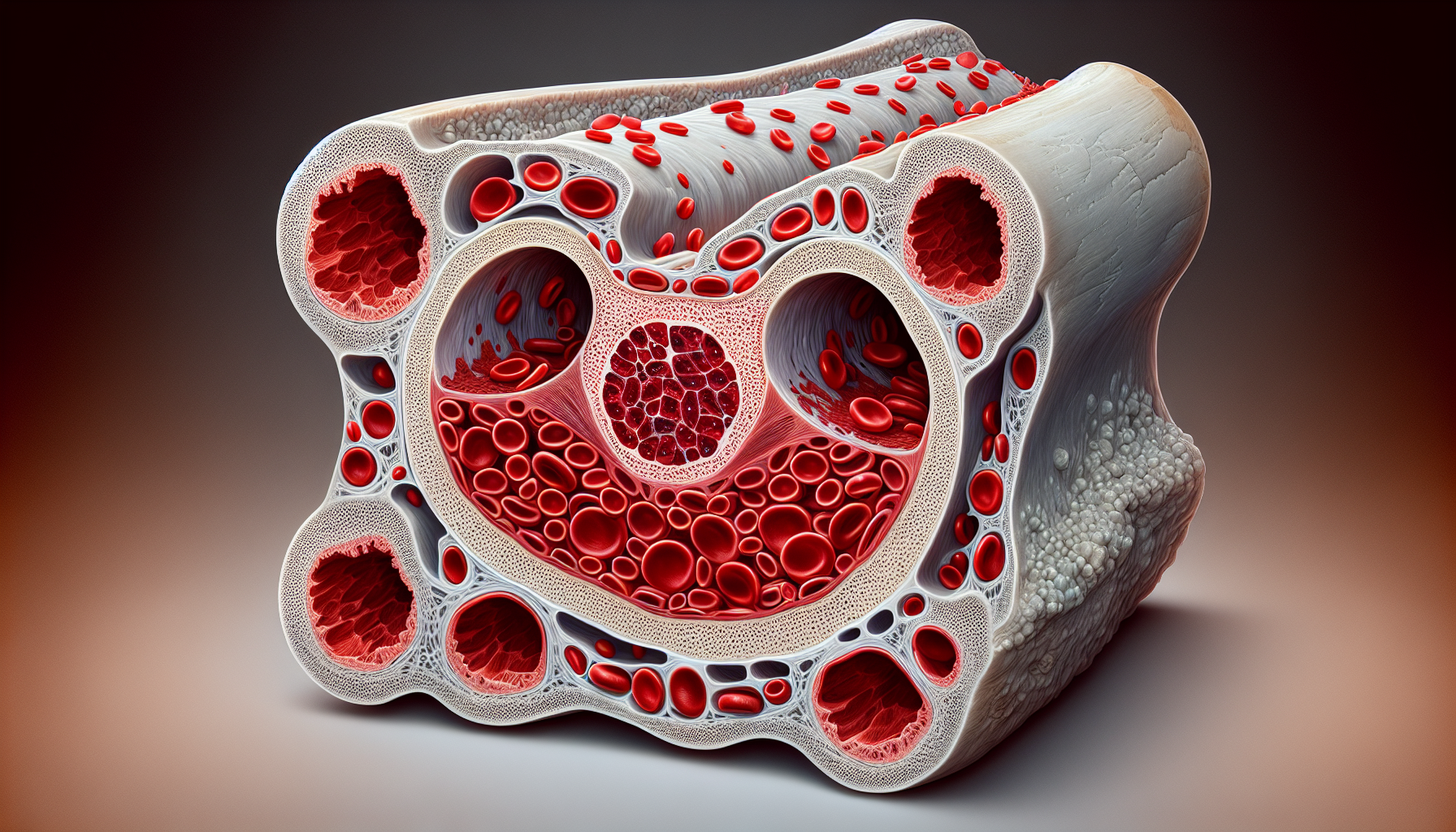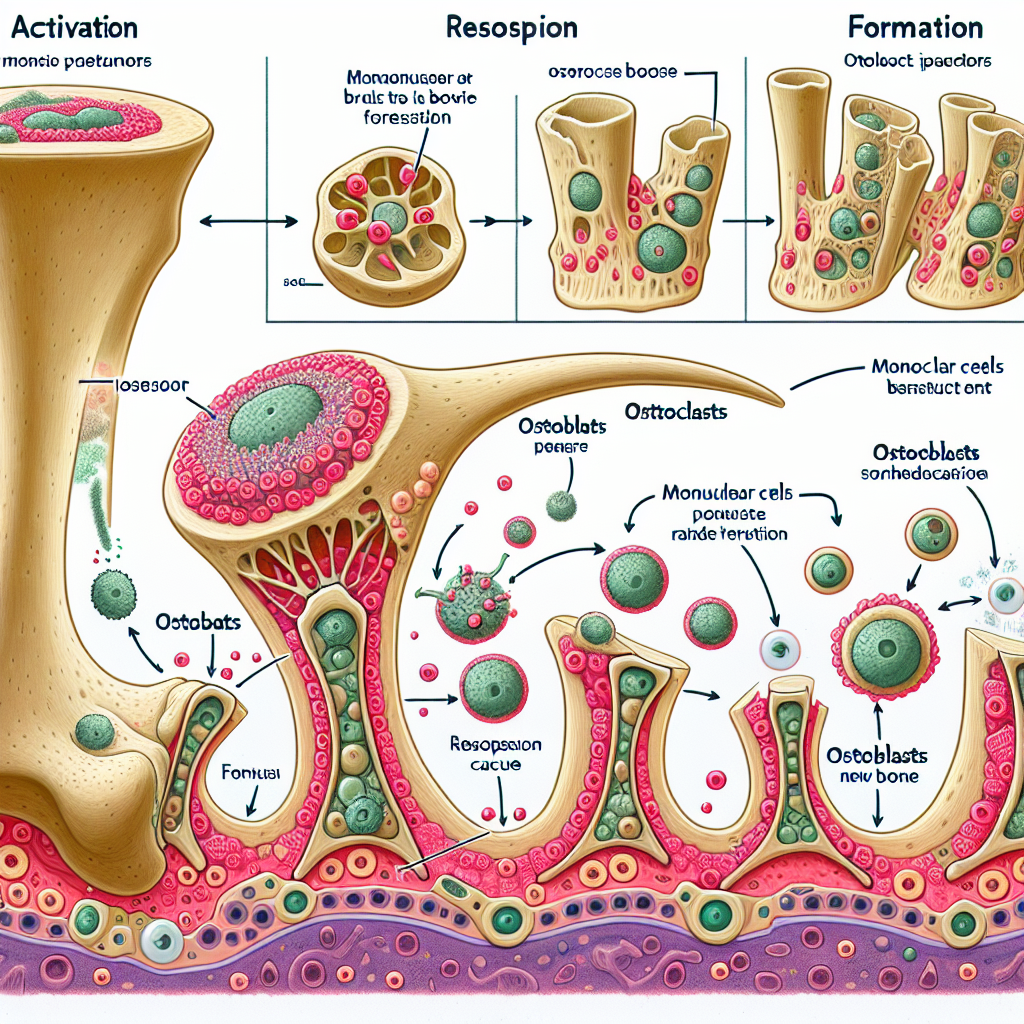Bone marrow is a significant but often overlooked component of our skeletal system. As the primary site for the production of blood cells, bone marrow plays an essential role in maintaining both bone health and overall well-being. This article will delve into the complexities of bone marrow function and its impact on bone health, drawing connections to broader health topics and providing insights into maintaining a robust skeletal system.
The Role of Bone Marrow in the Body
Bone marrow is a soft, spongy tissue found in the cavities of bones. It comes in two forms: red marrow, which is responsible for producing red blood cells, white blood cells, and platelets, and yellow marrow, which is primarily made up of fat cells and serves as a storage for energy.
The production of blood cells in the bone marrow—a process called hematopoiesis—is crucial for carrying oxygen, fighting infections, and preventing hemorrhage. Red blood cells transport oxygen to tissues, white blood cells defend against pathogens, and platelets are essential for blood clotting. The health of bone marrow directly affects the quality and quantity of these cells.
Bone Marrow Dysfunction and Bone Health
When bone marrow malfunctions, it can lead to a range of hematological diseases, such as leukemia, anemia, and myeloproliferative disorders. These conditions not only compromise the body’s ability to produce healthy blood cells but also affect the integrity of the bones themselves.
For instance, certain types of anemia can lead to reduced bone density, making bones more susceptible to fractures. Leukemia can cause bone pain and tenderness due to the overproduction of abnormal white blood cells in the marrow, which may also lead to weakened bones.
Maintaining bone marrow health is, therefore, integral to ensuring that the skeletal system remains strong and resilient.
Nutritional and Lifestyle Factors Influencing Bone Marrow Health
A balanced diet rich in essential nutrients is vital for maintaining healthy bone marrow. Iron, vitamin B12, and folate are particularly important for the production of red blood cells, while vitamin C supports the production of white blood cells through its role in immune function.
Physical activity also plays a role in bone marrow health. Weight-bearing exercises stimulate bone remodeling and can increase the production of osteoblasts, the cells that form new bone tissue. This, in turn, can enhance the environment in which bone marrow operates.
Innovative Therapies for Osteoporosis Management
Osteoporosis, a condition characterized by weakened bones and increased fracture risk, can also be linked to bone marrow health. Innovative therapies for osteoporosis often focus on strengthening the bones, which indirectly supports the function of bone marrow. For more detailed insights into managing this condition, explore the article on Innovative Therapies for Osteoporosis Management.
The Importance of Sleep for Bone Repair and Health
Sleep is another critical factor in bone health. During sleep, the body performs essential repair processes, including bone remodeling. This not only improves bone density but also supports the health of bone marrow. Discover more about this connection in The Importance of Sleep for Bone Repair and Health.
Enhancing Bone Healing After Injury
When injuries occur, bone marrow plays a role in the healing process. Strategies to enhance bone healing often involve stimulating the activity of bone marrow to promote the regeneration of bone tissue. Read about effective strategies in the article Strategies to Enhance Bone Healing after Injury.
External Resources on Bone Marrow Health
To further understand the importance of bone marrow in bone health, several high-quality resources provide valuable information:
- A detailed study on the effects of nutrition on bone marrow can be found in the scientific journals of the American Society for Nutrition.
- Research articles in the Journal of Bone and Mineral Research offer insights into the relationship between exercise and bone marrow cellularity.
- For an in-depth look at the impact of sleep on bone health, the Sleep Foundation offers comprehensive resources on this topic.
Bone Health and Related Health Topics
While bone marrow is critical for bone health, it’s essential to consider the broader context of overall health. For example, Bone Health is intrinsically linked to areas like cardiovascular health, as proper blood cell production supports heart function and circulation.
Conclusion
Bone marrow is a cornerstone of bone health, with its function extending far beyond the production of blood cells. Its health is influenced by a myriad of factors, including nutrition, exercise, sleep, and even hormonal changes. Understanding and supporting the health of your bone marrow can lead to stronger bones, better overall health, and a reduced risk of various hematological conditions.
Incorporating a balanced diet, engaging in regular physical activity, getting adequate sleep, and managing stress are all strategies that contribute to the wellbeing of your bone marrow and, consequently, your bones. By recognizing the critical role bone marrow plays in our health, we can take proactive steps to maintain it and improve our quality of life.



